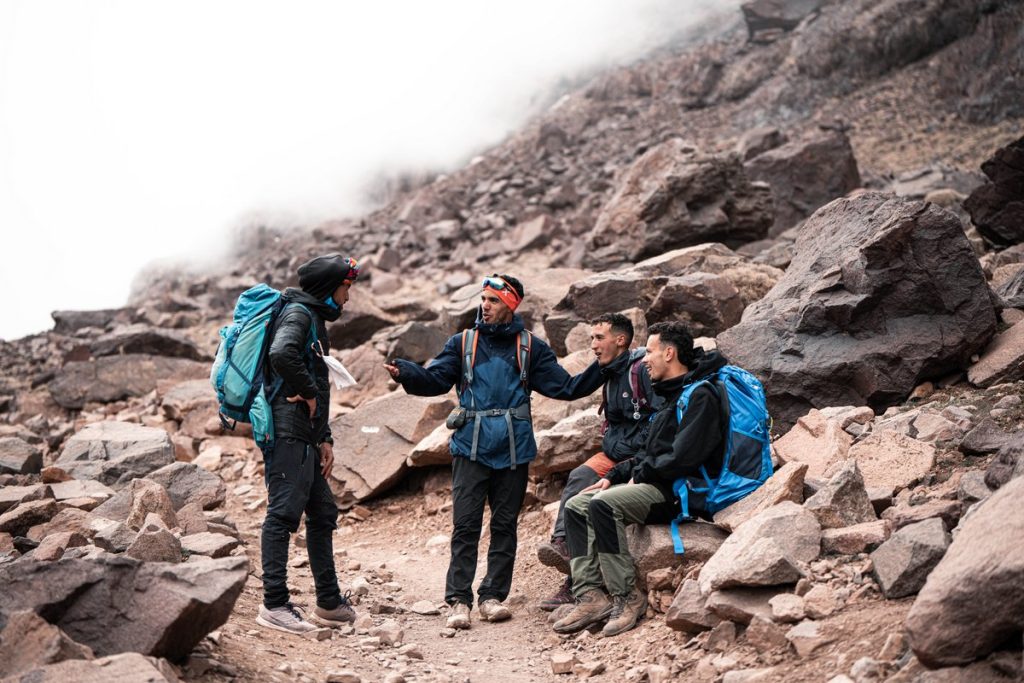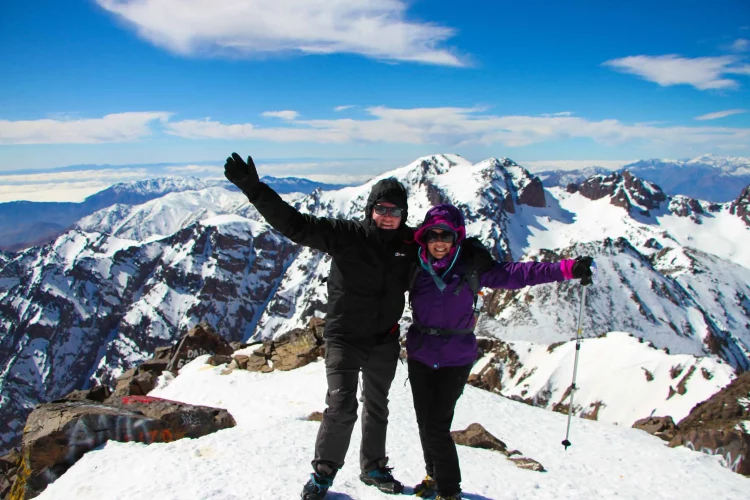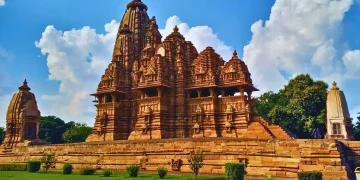Morocco’s Atlas Mountains, a majestic chain that stretches across the country from the Atlantic Ocean to the Sahara Desert, are not only a feast for the eyes but also a living testament to Berber culture and traditions. When I first set out on a trek through this rugged terrain, I had little idea of how deeply it would transform my understanding of Morocco—its history, its people, and their rich cultural heritage. The Atlas Mountains, often overlooked in favor of cities like Marrakech or Fes, are a region of stunning beauty, where traditions have endured for centuries, sheltered from the modernizing rush of urban life.
In this story, I share my personal experience exploring the Atlas Mountains and immersing myself in the world of the Berber people. From wandering through remote villages where time seems to stand still, to witnessing age-old rituals that celebrate both community and nature, this journey proved to be a profound exploration of Morocco’s heart.
1. The Journey Begins: Trekking Through the Atlas Mountains
I started my trek at the foothills of the Atlas Mountains in Imlil, a small village that serves as a gateway for mountaineers heading toward Jebel Toubkal, the highest peak in North Africa. The path was steep, with the air growing thinner and the temperature cooler as we climbed. The landscape was mesmerizing—rivers carving through valleys, terraced fields of crops, and clusters of traditional mud-brick houses perched on the hillsides.
The trek wasn’t just about the physical challenge; it was about connecting with a landscape that seemed to breathe with history. The more I walked, the more I realized how the Berber people have lived in harmony with this rugged environment for millennia. The mountains themselves seem like sacred guardians, and I soon discovered how deeply they influence the Berber way of life, from agriculture to spirituality.
What struck me immediately was the tranquility of the region. Unlike the bustling cities of Morocco, where the hum of life never fades, the Atlas Mountains are a retreat, offering both isolation and connection. The people here are rooted in their traditions and their landscapes, and it’s impossible not to feel that you are a visitor to a world that is older than time itself.
2. Cultural Insights into Berber Life, Traditions, and Hospitality
One of the most enriching aspects of this journey was my immersion in Berber culture. The Berber people, or Imazighen, have inhabited North Africa for over 4,000 years, long before the Arab influence shaped much of the region. They are known for their resilience, close-knit communities, and unique traditions that have been passed down through generations.
Hospitality is a cornerstone of Berber life. Every person I encountered, from the guides leading the trek to the villagers in the remote mountain settlements, welcomed me with warmth and openness. It’s a well-known tradition in Berber culture that a guest is treated with the highest regard. In one village, I was invited into a local home, where I was offered a steaming cup of mint tea. This ritual, which is central to Berber hospitality, is about more than just sharing a drink—it’s a sign of respect, a moment for bonding, and a way to honor the guest.
The tea ceremony is an intricate affair, with the tea poured from a height to create froth, a sign of the skill of the host. It’s not just about the tea itself but about the symbolism of hospitality and respect for others. As I sat in the warm, inviting home, I understood why this practice holds such a revered place in Berber society.
In the villages, daily life revolves around community and the land. Families tend to crops like barley, wheat, and olives, while others tend to herds of sheep and goats. Much of the food is grown locally—there’s a heavy reliance on local produce—and the meals are simple yet rich in flavor, often made from fresh vegetables, bread, and meat.
During my time trekking, I was fortunate enough to witness traditional Berber music and crafts in the villages. Music plays an important role in Berber culture, often accompanying celebrations, rituals, and gatherings. The sound of drums, flutes, and the unique imzad (a one-stringed violin played by women) filled the air during one evening gathering in a mountain village. The rhythms of the music, like the land itself, felt timeless.
In addition to music, Berber craftsmanship is another proud tradition. The Berber people are renowned for their woven rugs, handmade pottery, and intricate jewelry. In the markets, I was mesmerized by the colors and designs of the rugs, each pattern telling a story of the region’s history and the families who crafted them.

3. Exploring Local Customs: Tea Ceremonies, Music, and Crafts in Remote Mountain Villages
The remote mountain villages I visited were isolated from the urban world, which helped preserve their unique customs. One of the most memorable experiences was attending a local festival in a small Berber village. The festival, held in honor of the harvest season, was a celebration of music, dance, and food. It was not a tourist attraction, but a community event, where locals came together to give thanks for the crops and to celebrate life.
Traditional Berber dances were performed around a large fire, with men and women joining hands, dancing in rhythmic circles. The beats of the drums echoed against the mountain walls, and the warmth of the fire created a feeling of unity among the villagers. I was invited to join in the dance, an offer I could not refuse. As I moved to the beat, I felt a profound sense of connection to the community, to the land, and to a way of life that felt unhurried and deeply meaningful.
While the crafts in the region are typically associated with art, they also hold immense cultural value. Many Berber women in these villages still make their living through weaving, creating rugs, blankets, and textiles using natural dyes and time-honored techniques. I visited a local workshop where women worked on looms, their hands moving with the fluidity of someone who has done the same task for years, perhaps even generations.
The pottery of the Berber people is also exceptional, with designs that reflect the natural surroundings. Each piece is carefully shaped, molded, and painted, often depicting local flora and fauna. In these small villages, art is not just a commodity; it’s a reflection of the culture, the land, and the values of the Berber community.
4. The Impact of Tourism on Local Culture and Efforts to Preserve Authenticity
As the world becomes more connected, tourism is increasingly reaching the remote corners of the Atlas Mountains. While tourism brings economic opportunities and helps preserve some traditional crafts, it also poses challenges for local culture. In some areas, mass tourism is having a detrimental impact on both the environment and the traditional way of life.
Some of the remote villages I visited have embraced sustainable tourism, with local guides leading treks and eco-lodges offering accommodations. However, there are also concerns about the authenticity of the experience. Some tourist-driven activities have begun to overshadow traditional customs, and with increased demand for souvenirs, there’s a risk that traditional crafts could become overly commercialized, losing the personal touch that makes them unique.
The Berber people, however, are resilient. Many villages are working hard to preserve their culture through responsible tourism, ensuring that visitors can appreciate the traditions without compromising their integrity. I noticed that local guides were very conscious of educating tourists about the importance of respecting the environment, the culture, and the Berber way of life. At one point, my guide, Ahmed, told me that while tourism was an opportunity for his community, it was essential that visitors understood the significance of the customs they were witnessing.
5. How the Trip Changed My Perspective on Culture and Nature
My trek through the Atlas Mountains not only deepened my appreciation for the natural beauty of Morocco but also profoundly shifted my perspective on culture and human connection to the land. The Berber people’s enduring traditions, their resilience, and their deep bond with the landscape were humbling to witness.
Spending time in the mountains, away from the noise of modern life, I realized how disconnected we often are from nature and our own cultural roots. The Berbers, living in relative isolation, are intricately woven into the fabric of the land. Every stone, every grain of wheat, and every note of music carries the weight of centuries of tradition.
By the time I descended from the mountains, I felt a deep sense of gratitude and humility. I had experienced not just the beauty of Morocco’s natural landscape but also the richness of a culture that has endured through adversity, holding onto its traditions and values despite the changing tides of history.
Conclusion
The Atlas Mountains, with their rugged peaks and deep valleys, are much more than just a beautiful landscape—they are a sanctuary of culture and history. The Berber people’s hospitality, music, crafts, and connection to the land are an integral part of this region, and my journey through these mountains was a testament to the enduring spirit of the Berber culture. As tourism continues to grow, it is important to approach this area with respect and an understanding of the delicate balance between tradition and change.
For anyone seeking to experience the heart of Morocco, there is no better place than the Atlas Mountains. Here, culture and nature intertwine, offering a journey that is as much about the inner experience as it is about the outer exploration.





















